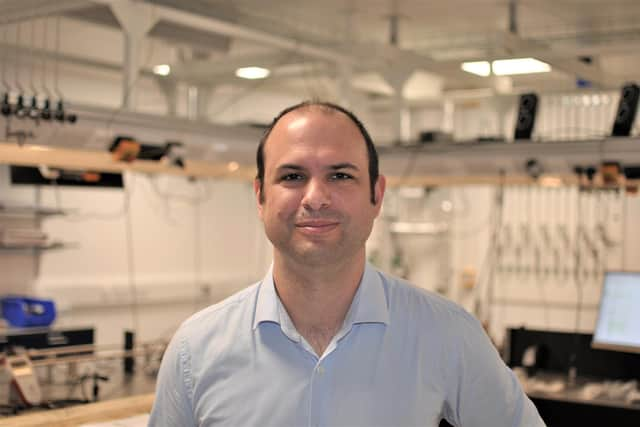Edinburgh's Heriot-Watt set for new centre of excellence after scientist secures £2.5m award to accelerate laser tech with many industrial applications
A scientist at Edinburgh’s Heriot-Watt University specialising in ultrafast lasers has been honoured with a prestigious award for research seen as having the potential for multiple transformational applications in sectors including manufacturing, electronics, artificial intelligence, and drug discovery, with the funding enabling the creation of a relevant centre of excellence on site.
John C. Travers, professor of physics and director of the Laboratory of Ultrafast Physics and Optics, has been awarded a £2.5 million Royal Academy of Engineering Chair in Emerging Technologies, a scheme funded by the UK Department for Business, Energy and Industrial Strategy recognising emerging technologies with high potential to deliver economic and social benefits to the UK. He is one of four academics receiving a total of £10m in this latest funding round.
Advertisement
Hide AdAdvertisement
Hide AdHe has been recognised for his research that could lead to breakthroughs such as X-rays that image nature with unprecedented detail and speed, and the development of microscopic mechanical devices.


Professor Travers’ research uses wave formations that were discovered in the Union Canal next to Heriot-Watt’s Edinburgh campus 200 years ago by Scottish civil engineer John Scott Russell, and the team at the university uses these waves – as light waves rather than water waves – to create ultrafast optical pulses that last an “attosecond” – a million billionth of a second. The process creates a high-performing form of bright ultraviolet light.
He said: “If we can create these extremely short pulses of X-ray or electron beams, it means we can image, probe and control matter on the smallest possible spatial scale – on a tiny, microscopic scale – and also on the fastest possible timescale – simultaneously. This can lead to advances like new materials, new drug discovery, and more powerful computer chips – which underpin everything we do, from our mobile phones to artificial intelligence. It will also mean materials can be processed to produce much smaller structures, so you'll be able to manufacture micro machines or microscopic mechanical devices with great precision.”
The professor, who leads a 15-strong research team, also said the ultraviolet system he has invented is tabletop size, rather than the “building-sized, multi-billion dollar machines currently used to generate ultraviolet and X-ray light sources”, while his system is already being used in 14 labs globally, including healthcare and semiconductor settings.
He believes Heriot-Watt has “first mover” advantage in this field, adding: “The Royal Academy of Engineering award is fantastic because it provides long-term funding to underpin our research. We will be able to recruit new academic staff at the assistant professor level and also build a centre of excellence in this area – so we’re not just boosting what we do, but actually recruiting more expertise from around the world.”
Dr Andrew Clark, executive director of Programmes at the Royal Academy of Engineering, said: “I am excited to announce this latest round of chairs in Emerging Technology. The mid-term reviews of the previous rounds of chairs are providing encouraging evidence that long-term funding of this nature helps to bring the groundbreaking and influential ideas of visionary engineers to fruition.”
The news comes after the Industrial Decarbonisation Research and Innovation Centre, which is based at Heriot-Watt, recently secured £1m to help accelerate the transition to net zero.
Comments
Want to join the conversation? Please or to comment on this article.